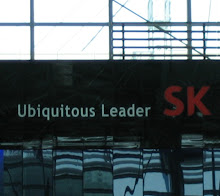It's a great job...until you sometimes stop and think about the way things are headed.
Here are two things, one from each aspect of my current job,...a blog post about the Colorado wildfires, and an article on Climate Change from the Chicago Tribune. The former was written by a former employee of my company, the latter features quotes and work from my boss' boss in Illinois.
On the surface, the messages that we get from these things are that maybe we should just give up....but really, if you believe in what we're doing....the messages are that the world is encouraging us to use disasters and changes to show people that what we're doing is important. Nature is delivering us the messages we need to send.....
General public! Please listen!!!!!
http://databasin.org/blog/2010/09/08/sleeping-dragon?ref=nf
Fires are happening because we do not burn as often as we need to. When that happens, we drastically increase the likelihood of naturally occurring fires. If we were to take over and burn in a calculated and controlled fashion every few years, we could prevent the widespread destruction that is currently going on.
http://www.chicagotribune.com/news/local/ct-met-climate-change-chicago-20100914,0,5406204.story
Climate change, at this point, is inevitable. But we can prevent it from getting worse by making sure that we keep as much land as possible in grasslands and forest so that we can make sure the carbon stays fixed in the earth. Plants breathe IN CO2 and breathe O2 out...that's one of the fundamentals of biology that nearly everyone learns in grade school. If we have more plants, they will be more able to deal with the CO2 that we're all producing to live our comfortable lives. If we take the plants away, not only can they not help us manage the CO2, but all the CO2 that they have stored up inside themselves and the soil beneath them over the years will flood the atmosphere and do nothing but make problems worse.
There....your semi-regular update on conservation science from someone who is in the midst of it.
Thursday, September 16, 2010
Subscribe to:
Post Comments (Atom)

No comments:
Post a Comment